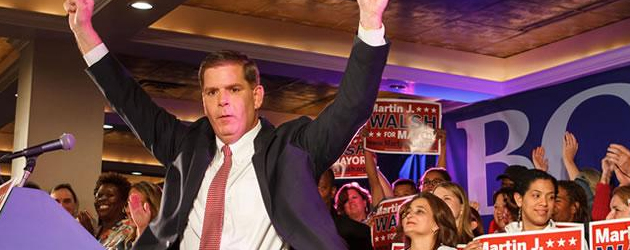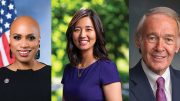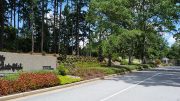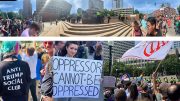By: Chuck Colbert/TRT Reporter—
BOSTON, Mass. — State Representative Martin J. Walsh emerged victorious in the Boston mayor’s race Tuesday night, Nov. 5, capturing 52 percent of the vote to City Councilor at Large John R. Connolly’s 48 percent.
Fewer than 5,000 votes separated the two, with Walsh, 46, who goes by the name Marty, grabbing 72,514 votes to Connolly’s 67,606.
Overall turnout was 38 percent of registered voters, with more than 141,000 ballots cast.
Both candidates were enthusiastically supportive of LGBT rights and equality, as Walsh and Connolly worked hard for support from the gay community even as LGBT issues did not play a major role in the race.
Still, Walsh made headlines in mainstream media, trumpeting his support for marriage equality on Beacon Hill as “my proudest vote.”
Walsh played a key role from 2004 to 2007 as lawmakers debated a proposed amendment to the state’s Constitution, one that if advanced to voters and approved, would have rolled back same-sex marriage rights ushered in under the Supreme Judicial Court’s 2003 Goodridge decision.
Also, in mid-October Walsh held a press conference at his Jamaica Plain field office where he outlined a plan to protect gay youth. His approach called for “safe spaces,” as well as transitional housing for homeless youth, and improved training for police officers handling domestic violence, according to Boston Globe reporting.
Along with the story, the Globe ran a photo of Walsh sporting a rainbow-colored campaign sticker, flanked by two high-profile LGBT community leaders. They were state Representative Liz Malia and longtime gay-rights activist, Arline Isaacson, who lobbied lawmakers in the Legislature to protect Goodridge against any anti-gay constitutional amendments. [pullquote]Endorsements from three preliminary-race mayoral candidates, Charlotte Golar Richie, Felix G. Arroyo, and John F. Barros — all people of color — gave Walsh an edge in securing votes in the new Boston, a majority-minority city.[/pullquote]
Just who won the majority LGBT vote is anybody’s best guess, but Connolly was endorsed by two of the region’s LGBT publications, as well as the Boston Herald and Boston Globe.
Both campaigns ran ads in local gay media and hosted meet-and-greet campaign events in reaching out for gay community support.
Understandably, Connolly backers who gathered at the Westin Copley Place were disappointed their candidate fell short.
“John would have been a fantastic mayor,” said David Bancroft of South Boston at the Westin. “He had a progressive vision for the city to move us beyond the last 20 years. I think he would have been a better mayor.”
Like Bancroft, Edward MacLean of the South End, also voiced disappointment with election results at the same time he acknowledged both Walsh and Connolly, 40, were big-time LGBT community boosters.
“Both candidates were 100 percent behind the gay and lesbian community, which is an amazing accomplishment for the community to have achieved,” said MacLean at the Westin.
“Kudos for us,” he added. “At the end of the day, I don’t think there was any difference” between the two on LGBT issues.”
“I supported John because of his understanding that a solid education is really what unites us, creates safe neighborhoods, and a strong economy,” said MacLean.
More than a decade ago, MacLean met Connolly who reached out to him, offering pro-bono legal work to the Pride Lights, a non-profit bridge-building organization that provided gay and lesbian people an opportunity to share their understanding of themselves with the larger community. At that time, MacLean served as Pride Lights executive director; and Connolly assisted the non-profit in transferring assets to AIDS Action Committee in a merger.
“To his credit, he initiated contact with us,” said MacLean. “He sought us out and took an active interest in learning more about the gay and lesbian community.”
By and large, the Walsh campaign outmaneuvered Connolly’s operation in a ground game that fielded several thousand get-out-the-vote troops, compared to Connolly’s one thousand.
To this end, organized labor played a pivotal role as Walsh racked up margins in Hyde Park, Mattapan, Roslindale, Dorchester, Roxbury, and South Boston.
Connolly’s best showings were in West Roxbury, Jamaica Plain, Back Bay, South End, and Charlestown.
Allston-Brighton and East Boston were split between the two candidates.
Endorsements from three preliminary-race mayoral candidates, Charlotte Golar Richie, Felix G. Arroyo, and John F. Barros — all people of color — gave Walsh an edge in securing votes in the new Boston, a majority-minority city.
Money — particularly outside cash — was another factor. During the past several months, the Globe reported, nearly $4 million in outside backing poured into Boston, with Walsh benefiting from at least $2.5 million in TV ads, mailed campaign literature, and paid field workers.
For Walsh, much of the cash came from labor. [pullquote]“He has done more to create jobs for women and people of color in this city than anyone ever has done in the past,” she said over the telephone. “That’s why I am with him. — Susan Moir, Jamaica Plain”[/pullquote]
Education groups, by contrast, promoted Connolly to the tune of $1.3 million, according to the Globe.
Another important piece to the Walsh win was his ability to craft a life story that resonated across the city’s more than 200 precincts.
The son of Irish immigrants, Walsh fought off childhood cancer and later in life entered recovery for alcoholism.
His working-class, man-of-the-people appeal was also important to his backers.
As Susan Moir of Jamaica Plain put it before the preliminary election, “He has done more to create jobs for women and people of color in this city than anyone ever has done in the past,” she said over the telephone. “That’s why I am with him.”
In some measure, by playing a class-warfare card, outside-of-the-campaign-groups of Walsh supporters also succeeded in painting Connolly as an “elitist” — out of touch with working people.
Sure enough, LGBT backers of Walsh could not have been more pleased with election-night outcomes.
“Marty Walsh is the next mayor of Boston! We did it! Mayor will be the mayor for everyone!” said Craig Winskowicz, posting on Facebook.
In a pitch for post-election harmony, he added, “Welcome to Boston where diversity and the working class are important. If you forgot those values during this campaign we welcome you back. Unity is something Marty Walsh will do regardless of the negativity, division or skepticism! Welcome back fellow Democrats and Bostonians!”
Meanwhile, at the Boston Park Plaza Hotel, Walsh told his spirited supporters, “For this kid from Taft Street in Dorchester, you’ve made Boston a place where dreams come true.”
“Together, we’re going to make Boston a place where dreams come true for every person, in every corner of this city,” he said.








